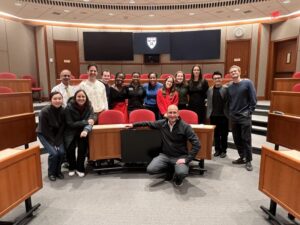Digital marketers have been using basic versions of machine learning for several years, although they may not have realized it. Sentiment analysis is a common example of this, with marketers leveraging natural language processors to identify positive, negative or neutral feedback en mass, without having to read a word themselves.
This efficiency in identification and classification is at the heart of marketers’ attraction to machine learning. As marketers are faced with unprecedented amounts of data, they need solutions to quickly analyze and deliver optimal digital communications.
Now, machine learning has become even more sophisticated and accessible, and the industry is seeing rapid growth in ML marketing solutions.
So, how will machine learning impact digital marketing in the years to come?
More Accurate Audience Targeting
One of the most valuable insights to have as a marketer is who exactly you should market to for the highest conversion. Whether you’re a B2B organization with a full sales team or a consumer e-commerce site, having the right target audience will save you a fortune.
Predictive analytics are increasingly being used along the entire conversion pipeline, starting with the identification of new markets to break into. This can be challenging for many organizations, but with predictive analysis of existing customer audiences, you can pursue a new demographic with data-backed confidence. Beyond the new market, machine learning identifies exactly who within the group would be the most efficient to target.
Once a lead has been acquired, new predictive analytics platforms are using scoring based on in-depth behavior analytics to highlight the most qualified leads. If your team has thousands of leads to sift through, this scoring will produce a higher overall lead-to-customer conversion rate with a honed in target list of prospects. After these highly qualified leads have been converted, ML provides the information needed to select who of the remaining leads marketers should nurture.
Better Optimized Digital Content
Machine learning has robust applications in content analysis and optimization which stretch to nearly every corner of digital marketing strategy. In descriptive analytics, ML analyzes consumer behaviors and then determine which digital communications will have the highest conversion rates by channel, audience, device, and more.
Beyond that, machine learning will eventually generate new, enhanced messaging that is more effective than what marketers alone could create. In the far future, the same will likely apply to imagery and audio.
Conversion rate optimization across the web is an area ripe for dramatic enhancement as a result of machine learning applications. WEVO, for example, leverages machine learning and enhanced crowdsourcing to predict conversion rates for landing page designs without having to launch live A/B tests.
Faster Processes and Reduced Resource Needs
Sentiment analysis via natural language understanding tools is just the tip of the iceberg when it comes to how machine learning can reduce the human resources needed for data analysis and marketing execution.
A step beyond language processing, machine vision models can identify what’s in an image and classify huge amounts of imagery without human assistance. This is especially useful for the identification and filtering of UGC (User Generated Content).
An extremely time-intensive process, the data analysis alone provided by machine learning saves countless man hours, as well as reducing human error. And once the results are ready, the progress made in automated data visualization makes it much easier and quicker for marketers to digest.
On-top of it’s standalone applications, machine learning adds a layer of intelligence to existing tools and processes that increases their efficiency.
How are you leveraging machine learning within your marketing organization? What insights can you share?
Interested in learning more about WEVO? Contact us here.



